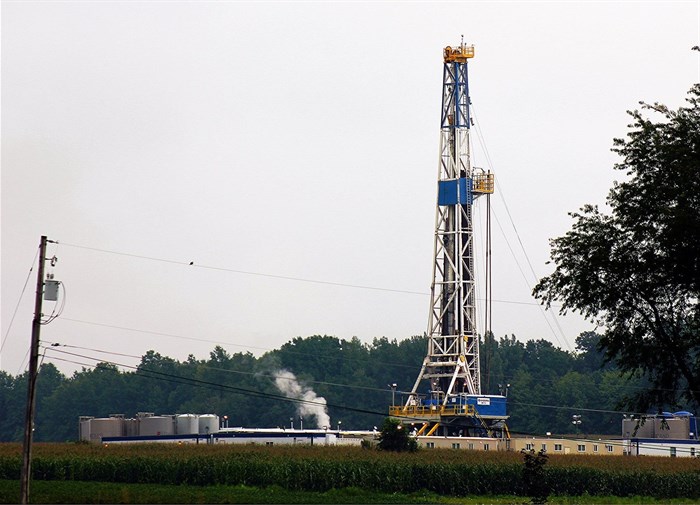Minister of Forestry, Fisheries and the Environment, Barbara Creecy, has published for consultation the proposed regulations pertaining to the exploration and production of onshore oil and gas requiring hydraulic fracturing.
The Minister also published the intention to prescribe minimum requirements for the submission of applications for an authorisation, right, permit or licence for the onshore exploration of oil and gas intending to utilise hydraulic fracturing.
The proposed regulations and minimum requirements have been published, in terms of the National Environmental Management Act.
The publication of the proposed regulations comes four years after the Supreme Court of Appeal set aside the Regulations for Petroleum Exploration and Production.
“They were intended to set standards for the use of hydraulic fracturing technology on the basis that they were managing environmental impacts and only the Minister responsible for the environment was empowered to make regulations on environmental matters.
“The regulations identify prohibited activities and prohibited geographic areas for the use of hydraulic fracturing technology, which include the use of potable water for hydraulic fracturing activities and the use of municipal water treatment facilities for the disposal of wastes from hydraulic fracturing operations,” the Department of Forestry, Fisheries and the Environment said on Wednesday.
In addition, an environmental authorisation is required for each phase of the process including seismic survey without hydraulic fracturing, hydraulic fracturing and the production phase.
This step-wise approach allows for information to be generated to support each phase of the process and will facilitate the consideration of cumulative impacts of the operation.
“General and specific requirements are set for ongoing environmental monitoring of hydraulic fracturing and production operations, while effect is given to coordination between decision-making authorities in relation to monitoring, environmental assessments, timeframes for the consideration of applications, conditions of approval and the decision-making process,” the department said.
Minimum Information Requirements
The Hydraulic Fracturing Regulation will be supported by two Minimum Information Requirements (MIR).
The first document will consider the environmental requirements for exploration anticipating the use of hydraulic fracturing and the second will consider the environmental requirements for exploration and production utilising hydraulic fracturing technology.
“These documents are to provide guidance to developers on the authorisation requirements for all decision-making and will facilitate a one stop authorisation process,” the department said.
Wilmien Wicomb 15 Aug 2019
“The first Minimum information Requirement being ‘The Minimum Requirements for the Submission of Applications for an Authorisation, Right, Permit or Licence for the Onshore Exploration of Oil and Gas Intending to Utilise Hydraulic Fracturing, Revision 0 May 2022,’ has been developed and is available for public comment,” the department said.
The objectives of the MIR are as follows:
- To identify and consolidate the authorisation requirements of all decision-making authorities into one guidance document for the information of the applicant;
- To facilitate the combination of the information prepared in line with the Minimum Requirements into one consolidated impact assessment report and base line monitoring plan;
- To facilitate the process of simultaneous application submission for the authorisation, permits or licences required for the onshore exploration of oil and gas intending to utilise hydraulic fracturing; and
- To facilitate the process of simultaneous decision-making.
A second MIR document dealing with the actual impacts of hydraulic fracturing entitled “The Minimum Information Requirement for the Submission of Applications for the Authorisation, Right, Permit or Licence for Onshore Exploration and Production of Oil and Gas Utilising Hydraulic Fracturing” will be prepared in the near future.
The public has 45 days to comment and make written submissions on the Regulations and the Minimum Requirements.
Members of the public are invited to submit written comments or input to any of the following addresses:
By post to:
Department of Forestry, Fisheries and the Environment
The Director-General
Attention: Dr Dee Fischer
Private Bag X447
Pretoria
0001
By hand at: Reception, Environment House, 473 Steve Biko Road, Arcadia, Pretoria.
The department has discouraged delivering the comments by hand due to the Covid-19 pandemic. Anyone entering the department’s buildings will be subjected to Covid-19 procedures.
By e-mail: az.vog.effd@rehcsifd
Any inquiries in connection with both the notices can be directed to Dr Dee Fischer at az.vog.effd@rehcsifd.
Comments or input received after the closing dates may not be considered.
To access the Government Gazettes, click on the following links:
Proposed Regulations pertaining to the exploration and production of onshore oil and gas requiring hydraulic fracturing
Minimum requirements for the submission of applications for an authorisation, right, permit or licence for the onshore exploration of oil and gas intending to utilise hydraulic fracturing






















































